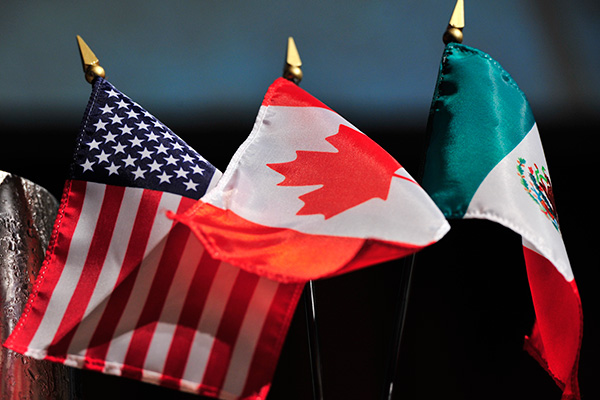CEC Joint Public Advisory Committee Advises North America’s Environment Ministers on Environmental Justice and Climate Change Solutions
JPAC recommendations focus on environmental justice and interconnected impacts of climate change.
Montreal, 8 November 2021—The Commission for Environmental Cooperation’s (CEC) Joint Public Advisory Committee (JPAC) has submitted new Advice to the CEC Council, following a meeting of the JPAC and a youth roundtable alongside the 28th annual CEC Council Session. Conducted virtually on 9-10 September 2021, the Council Session invited experts on sustainable resource management, disaster mitigation and planning and sustainable law and governance to participate in a public consultation on climate change and environmental justice solutions.
The Advice drives home the fact that climate change is not just an environmental issue. It is also about housing, the economy, infrastructure investment, public health, education and other interconnected socioeconomic issues. As the youth rapporteur during the Council Session, Justin Onwenu, stated, “It is about having a healthy democracy, climate change literacy and a space for all citizens to work with governments and make sure that their voices are heard when discussing solutions.”
“It is clear to experts and members of the public alike that solutions to address climate change must take into consideration environmental justice and the disproportionate impacts on vulnerable and underserved communities,” said Dr. Pedro Moctezuma Barragán, 2021 JPAC Chair and esteemed Mexican economist and academic. “The Advice JPAC has provided to the CEC Council recognizes the intersection of both environmental and social issues and reaffirms the importance of building resilient communities.”
JPAC engages the public across North America on pressing environmental issues, and provides advice to the environment ministers of Canada, Mexico and the United States after each public consultation, based on feedback from stakeholders, environmental and industry experts and members of the public.
The JPAC has provided the following recommendations for North America’s environmental officials, based on the most recent public consultation alongside the 2021 CEC Council Session:
- Identify and share best practices for the integration of climate change and environmental justice in government policies, programs and activities
- Identify and share case studies highlighting measures taken by vulnerable and underserved communities to increase their resilience
- Support capacity building for vulnerable, underserved and Indigenous communities
- Support climate change literacy through knowledge dissemination targeting vulnerable, underserved and Indigenous communities
- Support and/or strengthen the creation of national climate change and environmental justice laws and policies
- Support the professional development and involvement in CEC activities of North American youth
The Joint Public Advisory Committee is composed of nine citizens, three from each country (Canada, Mexico and the United States). Together, they advise the Council on a wide array of environmental issues within the scope of the Agreement on Environmental Cooperation.

About the CEC
The Commission for Environmental Cooperation (CEC) was established in 1994 by the governments of Canada, Mexico and the United States through the North American Agreement on Environmental Cooperation, a parallel environmental agreement to NAFTA. As of 2020, the CEC is recognized and maintained by the Environmental Cooperation Agreement, in parallel with the new Free Trade Agreement of North America. The CEC brings together a wide range of stakeholders, including the general public, Indigenous people, youth, nongovernmental organizations, academia, and the business sector, to seek solutions to protect North America’s shared environment while supporting sustainable development for the benefit of present and future generations
The CEC is governed and funded equally by the Government of Canada through Environment and Climate Change Canada, the Government of the United States of Mexico through the Secretaría de Medio Ambiente y Recursos Naturales, and the Government of the United States of America through the Environmental Protection Agency.